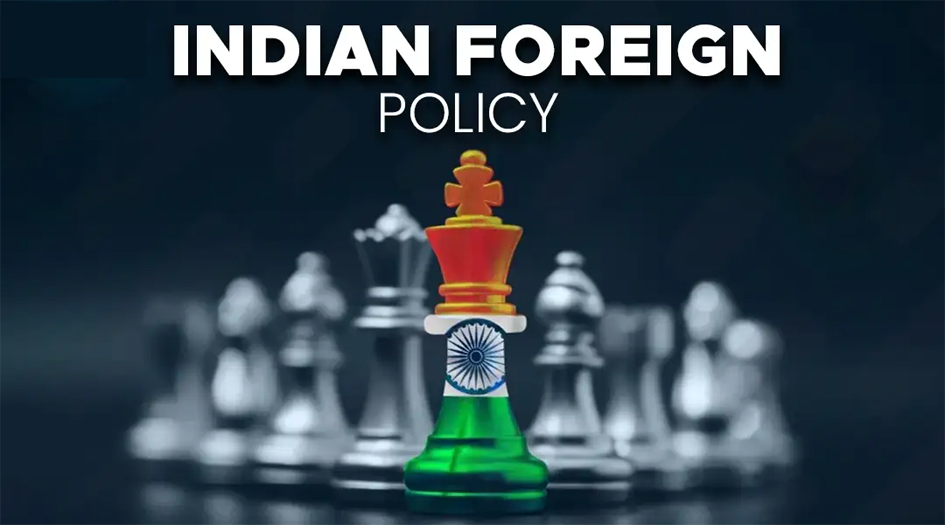By Prof.(Dr) D.K.Giri
Recently, External Affairs Minister S. Jaishankar encouraged the non-government strategic community to step up and actively engage in India’s external relations utilizing Track-II diplomacy, even suggesting they could surpass Track-I efforts. Jaishankar expressed concern that Track-II diplomacy has regrettably lagged behind, making his statement quite timely and welcome coming from the Foreign Minister.
For some time, we have asserted that foreign policy making in India has largely been an elite endeavor, leaving non-governmental organizations, businesses, and civil society in a minimal or nonexistent role. In a democratic context, this does not accurately reflect national sentiment or interest. More specifically, foreign policy decisions have predominantly been the purview of the ruling party, with insufficient consultation from the Opposition. While foreign policy is meant to serve national interests, one must consider who defines these interests—the ruling party, the foreign ministry, or the PMO. Ideally, they should be determined by the broader populace, raising important structural questions that warrant discussion.
Nonetheless, it is essential that foreign policy development becomes more inclusive and prioritized in public discourse and political campaigns. Fortunately, public interest in foreign policy is growing, as evidenced by the increase in social media discussions, newspaper articles, and television debates.
In this article, I aim to highlight several new frameworks that could be created or revitalized to enhance India’s foreign policy. The primary structure in Track-II diplomacy should focus on cultural diplomacy. Culture is undoubtedly more influential than religion, politics, or economics. It is a practice and mindset cultivated over generations. Cultural diplomacy occurs when individuals visit and engage with citizens in other countries.
The diaspora serves as a valuable strategic asset in this context. I discussed the role of the diaspora in foreign policy in my column last week. With the largest diaspora in the world today, India should effectively utilize this demographic. Historically, India played host to friendship associations with numerous countries that were quite active. For instance, the India-Pakistan Friendship Association was known for promoting goodwill missions between the two nations. Asma Jahangir, a prominent lawyer and human rights activist from Pakistan, was involved in this initiative. Former journalist Gautam Navlakha, who participated in this forum, has faced legal challenges related to the Bhima Koregaon case. However, irrespective of these controversies, it is crucial that the legal system operates independently. I was formerly part of the India–Iraq Friendship Association, which unfortunately disbanded following the Iraq war. Reviving or establishing such associations is crucial.
Likewise, economic diplomacy offers a pathway to reinforce foreign relations. In recent years, many countries have embraced economic transactionalism, a trend that India has followed since the 1990s. Economic diplomacy often precedes political relations, as evidenced by European Union integration. While trade and economic collaboration began in 1957, the political union was only established in 1992.
There are several agencies dedicated to promoting Indian businesses globally in a politically neutral manner. Alongside well-established organizations like FICCI, CII, Assocham, and PHD, innovative entities such as the Indian Economic and Trade Organisation (IETO) are proactively engaging, operating 11 trade councils worldwide, and leading regular business delegations to explore global market opportunities.
Having participated in numerous events organized by these agencies, which involve diplomats, entrepreneurs, traders, and manufacturers, I can attest to their active facilitation of international business. The Government of India should provide continued support to encourage these activities and organizations.
Another burgeoning area is conference diplomacy, which merits more attention. Following the successful G-20 summit, the world looks to India for more such events. In Track-II diplomacy, the Raisina Dialogue, launched in 2016 by the Ministry of External Affairs and the Observer Research Foundation (ORF), is increasingly recognized globally.
India has the potential to become a hub for dialogues and conferences on various themes across different state capitals. Conferences attract academics, policymakers, and influencers worldwide. Leading newspapers and television networks frequently host such events—leadership forums, literature festivals, celebrations of India’s progression, and more. These endeavors should occur more frequently.
Think tank diplomacy represents another less-developed sector in India. Recently, an American think tank hosted a global conference in Delhi, yet only a few Indian think tanks participated. India, despite being the world’s most populous country, lacks sufficient think tanks focused on foreign policy. There is also a shortage of world-class journals and periodicals on international affairs. A new journal titled “India’s World” was recently launched, coinciding with Jaishankar’s remarks at the event.
Additionally, states diplomacy remains an underexplored dimension in India’s foreign policy landscape. While areas like foreign policy, defense, energy, and communication are primarily the central government’s responsibility, ignoring the role of states in international affairs is unwise. Foreign heads of government often visit states to pursue business and investment opportunities, but there is room for more collaboration.
Consider Odisha, a mineral-rich state with abundant land, expansive coastlines, significant forest cover, and a rich culture, yet it remains less visible on the international stage. Since June 2014, following the election of a majority BJP government that secured 20 out of 21 BJP MPs, Odisha has sought to present itself to the global community. Recent events include the organization of the 18th Person of Indian Origin conference from January 8th to 10th and an Investors’ Meet scheduled for January 28th and 29th in Bhubaneswar. Additionally, as a key contributor to Indian hockey, Odisha has hosted international hockey tournaments. The principle is that each state or region should be empowered and motivated to participate in India’s global engagement.
These proposed structures represent just a few suggestions. Numerous other avenues exist for incorporation into Track-II diplomacy to enhance India’s foreign policy.—INFA
(Copyright, India News & Feature Alliance)
New Delhi
16 January 2025


Leave a Reply